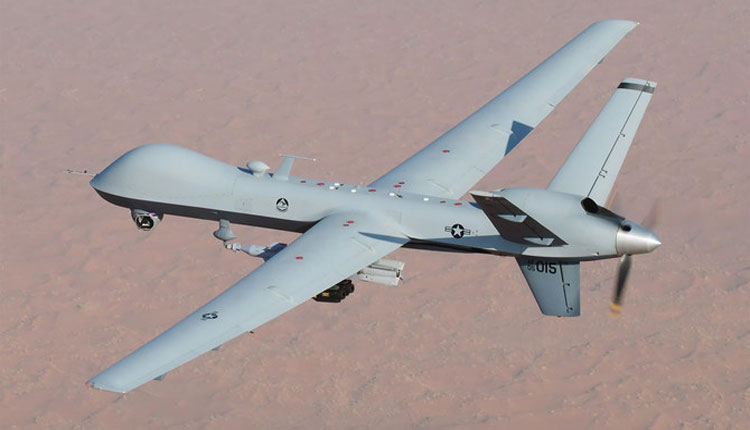New Delhi: After several years of negotiations, India and the United States are close to finalising a significant defence deal involving the procurement of 31 MQ-9B Predator drones. This deal aims to enhance India’s surveillance and reconnaissance capabilities, particularly in the Indian Ocean and along the Line of Actual Control (LAC).
Under the proposed agreement, India will receive 15 MQ-9B drones for maritime operations, which will be deployed by the Indian Navy. The Indian Air Force and Army will each receive eight high-tech drones for deployment in strategic areas, including the LAC.
Defence sources indicate that this proposal is expected to be discussed and potentially approved in today’s Defence Acquisition Council (DAC) meeting, the first of its kind in the third term of Prime Minister Narendra Modi’s government. Led by Defence Minister Rajnath Singh, the meeting is anticipated to further India’s defence indigenisation efforts.
The deal, estimated at $4 billion (approximately Rs 33,000 crore), was announced during Prime Minister Modi’s state visit to the US in June 2023. However, India aims to negotiate a reduction in the cost. If finalised, the partnership will expedite the development of advanced drone technology within India.
General Atomics, an American defence firm, is a key player in this deal, having engaged in detailed discussions with Indian officials in recent weeks. The Indian Navy has been at the forefront of these negotiations, coordinating efforts across the three services.
The MQ-9B Predator drones come in two variants: the Seaguardian and the Skyguardian. The Seaguardian is designed for maritime surveillance, while the Skyguardian is intended for land-based reconnaissance. Both types require long runways for takeoff and landing, which the Indian Air Force can provide.
The Predator drones boast impressive capabilities, including a flight endurance of over 36 hours at altitudes exceeding 40,000 feet. They are equipped for surveillance and espionage missions, capable of carrying air-to-ground missiles and smart bombs with a payload capacity of over 1,700 kg. These drones can conduct precise air-to-ground attacks and are invaluable for long-range intelligence gathering and surveillance.
In military operations, the Navy can utilise Predator drones to neutralise enemy submarines and surface threats, while the drones can also deter air attacks and deliver humanitarian aid. Their advanced surveillance capabilities will significantly aid in tracking activities in the Indian Ocean, as well as monitoring movements from China and Pakistan.
Additionally, these drones will enhance counter-terrorism efforts in regions like Jammu and Kashmir, where dense forests often provide cover for terrorists. The advanced reconnaissance abilities of the Predators will support security forces in locating and targeting these threats more effectively.
As discussions progress, the potential approval of this drone deal marks a significant step in bolstering India’s defence capabilities, emphasising the importance of international cooperation in enhancing national security.



Comments are closed.